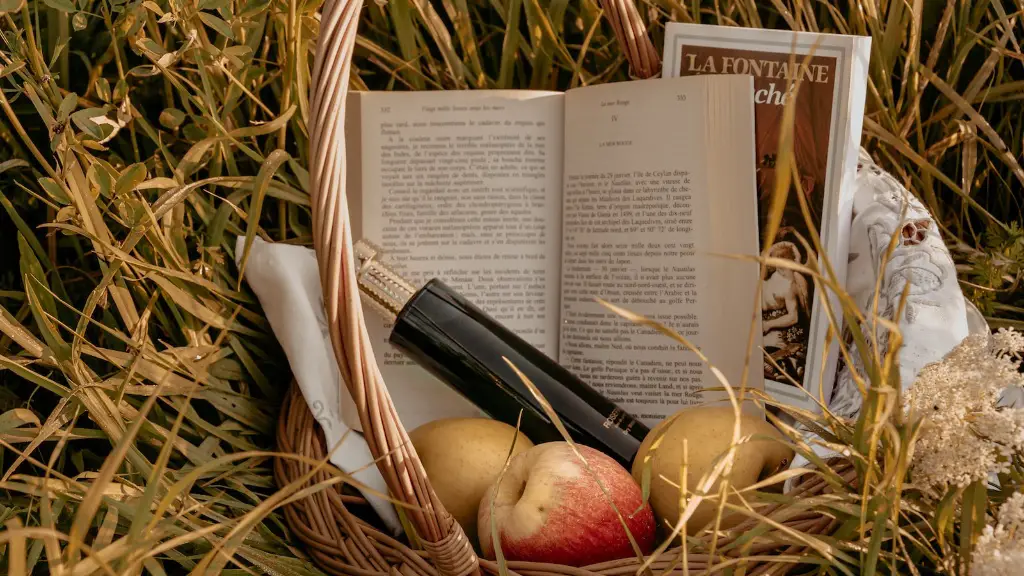Organic poetry is an often misunderstood form of writing. It is not a collection of obscure words and phrases, used simply for their lack of meaning. Rather, organic poetry is a type of writing experience that focuses on the power of language to bring about emotional responses from the reader. It is the form of writing that aims to make a literary work as effective in expressing ideas, feelings and meaning as any painting, sculpture or other artwork. Organic poetry cannot be easily explained or classified, as it is more of a process than a type of writing. It is more a way of thinking about the articulation of language and in searching for the order and meaning of them.
Organic poets search for the patterns of ideas and feelings embedded in language, and use these patterns to create works that make a statement. They use metaphors and similes, contradictory imagery and creative interpretation of terms to make the work of literature more vivid. These writers often experiment with language, finding a new and interesting ways to use it, to compose something from nothing. By using language that is both interesting and meaningful, organic poets can make more engaging work than more traditional writers.
The key to writing effective organic poetry is to create the impression of the poem without having the reader struggle to understand its meaning. For this, the poem needs to be syntactically correct, yet flexible. Organic poets often draw upon elements of nature, such as landscapes, images, movement, and sound, to create a vivid and meaningful work. Additionally, they use imagery, rhythm, sound, and onomatopoeia to create an interesting and captivating work. In doing so, organic poets explore their surroundings and how they can represent the world in words.
Writers of organic poetry are often interconnecting to nature in ways other kinds of poets might not. They use their senses to explore it and create an engraved image in the minds of their readers. Organic poets often look for universal themes in nature, and draw meaning without leaving the reader to guess. By taking the imagination into the unspoken, the territory of the sublime, and nature, organic poets can elevate their work and give insight into their innermost thoughts, feelings and experiences. Consequently, organic poets try to use the natural structure of language to tell stories and to portray deep emotions and beautiful images, without resorting to words with clichéd and obvious meaning.
Organic poetry is a way to express not just ideas, but emotions and experiences. With the right words, and the ability to show them in a creative way, organic poets can create works that engage and move the reader. In doing so, they make a connection to the reader, and a connection to the natural and spiritual worlds. By understanding the power of language, organic poets can provide a unique perspective on the world.
Limitations
Organic poetry is not without its limitations. It can be difficult to structure a poem in a way that conveys all the intended meanings, while still being structurally correct, and it can be difficult to make sure that all the meanings are crystal clear. Also, some might find it difficult to make sure that the language chosen is original and engaging. Without a full understanding of the process and tools necessary to craft an organic poem, writers can find themselves at an impasse, without the necessary tools to break through.
Organic poetry is also limited by the amount of time and energy that one can dedicate to it. Writing poetry takes focus and dedication. Writers need to be willing to set aside their preconceived ideas, to put in the time to think critically, brainstorming and crafting words, and to put in the time to rework and refine their work. Doing so can help ensure that a poem has the best possible chance of succeeding as an organic poem.
In addition, it is important to pay attention to the mental state of the writer. The state of mind of the poet will often determine the level of success of their work. Writers need to be aware of the kinds of feelings they are trying to evoke and be able to express them correctly through their choice of words and structure. Emotional envelopment is essential to organic poetry and can often set it apart from other forms.
Ethical Considerations
It is important to think about the ethical implications of using organic poetry. Writers need to consider the responsibility of writing ethically and avoiding the use of language for any ill-thought out purposes. When writing about other people, issues, cultures and situations, it is important to maintain respect for all of these different factors. Choosing words carefully can be critical in ensuring that no one is wronged, or any opinions misrepresented.
In addition, writers need to be aware of their readers. An organic poem can be highly personal, and it is essential to express ideas with sensitivity. It is also important to ensure that each poem contains only the ideas and feelings of the writer, leaving the reader with the right impression. Writers need to pay attention to any potential backlash that could result from their work, and think of how people in its audience might feel.
Style
Organic poetry is often recognisable by its distinct style. Typically, organic poets avoid the use of clichés and conventional language structures and opt for a more creative approach. Writers may choose to use abstract or obscure imagery to convey feelings and ideas, or they may use concrete images. Additionally, organic poets may choose to play with the structure of words and phrases to create unique and interesting works.
Furthermore, organic poets often use sound and visual effects to give the poem an extra level of meaning. This can be done through the use of alliteration, rhymes, interior and exterior rhymes, and assonance. Additionally, the writer may choose to reflect traditional poem forms, making use of repetition and shifting line lengths. Many organic poems also make use of subconscious or semi-hidden references, giving them an extra level of depth and interest.
Reception
Organic poems have met with mixed reactions. Some people may find the abstract nature of organic poetry confusing and too hard to understand, while others may view the emotional nature of the work as too difficult to engage with. Additionally, some people may not be able to appreciate the wider implications of the poem, or its complex use of language. At the same time, there are those who embrace organic poetry, finding its experiential nature intriguing and its ability to tell stories without explicit meaning unique.
Organic poets have often challenged traditional understanding of poetry and pushed the boundaries of genre and meaning. As such, they can be seen as pioneers, expanding what poetry can be, and exploring new possibilities. Their works bring a level of complexity and emotion that can transform how a person perceives literature and the natural world.
Conclusion
Organic poetry is a form of writing that is open to interpretation and experimentation. It is a way of engaging with words and language to bring out an emotional response from the reader. It is a way of exploring the natural world, and of interpreting experiences and ideas in an original and meaningful way. Organic poets go beyond the traditional notions of poetry, using their senses and the natural structure of language to convey deep meanings and emotions. In doing so, they create works that can lead to a change in the way that readers perceive both themselves and the universe around them.


